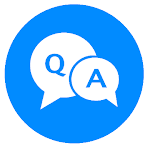Unlocking Life's Mysteries: Exploring the Essence of Fundamental Questions in 'What Is'
The utterance What is? … is like an open sesame that makes possible the solution of a limitless number of puzzles. What is truth? What is life? What is consciousness? What is the meaning of life? To what has mankind been born? What is existence? What is time?
The words of Heinrich Günter Hesse, an underappreciated philosopher of science, could stand as an introduction to an essay on the excellent and wide-ranging new book What Is? by Dov Gabbay, Jez of Souls and John Woods (2021). In the course of addressing the high-flyers in Hesse’s list, the authors traverse areas in which certain формальные вопросы (formal questions) recur.
These questions arise in all fields where interests in true or valid representations of the world have taken hold. Ask yourself: What is time? What is life? Then find help in what philosophy has to say, and ask yourself: What is? As we recognise in our book Why? an Answer to Philosophy’s Most Persistent Question (2020), the asking of questions like this, and more basically what is, is an activity in which humans, Finite Minds, intelligently engage. Here the other F-words find a niche – science, social science and, purportedly, cosmology.
Just like the asking of the question what, it forms part of the human enterprise. Indeed, as Hesse implies, asking questions and looking for answers seems to be the sole constant in the adventure of human curiosity; it ‘makes possible the solution of a limitless number of puzzles’. On that point, Gabbay, Jez and Woods would surely concur.
The Significance of "What Is"
‘What is’ is a basic question that lends structure to intellectual enquiry, impelling us to ask how and why and what, and prying open doors to discovery. We ask it of the cosmos and ourselves, of vacuum bubbles and the love lives of porpoises, or of such seemingly basic things as quadratic equations and telephones. It is the question that usually gives sprout and strength to the curiosity that sparked the bulb-shaped outbursts of the scientific revolution.
Contextual Applications
Philosophy: ‘What is?’ in philosophical discourse is concerned with the nature of reality and existence, such as metaphysical questions about what it means for something to be, and what a thing itself is. The names that spring to mind in this context, such as Plato, Aristotle and René Descartes, have tried to make sense of questions about reality itself.
Science: What is? This is the province of the sciences, which inquire into the nature and behaviour of matter and phenomena. Scientists ask: What is this elementary particle made of? What is this cancer growth? What is the history of the cosmos? What exactly is that object over there? From subatomic particles to the cosmos itself, science enquires into what things really are, and what exactly they do.
What and Language: What is? This is a foundational linguistic query and phrase. It is woven into the fabric of language structurally as part of defining, explaining, and even separating our categories of thought. The way in which we begin understanding words and concepts is very often based around the question What is?
Technology and Innovation: Innovations are introduced through the question ‘What is possible?’ It is only when we reach the limits of technology and can see its state of impossibility that it becomes ripe for innovation. Possibility arises before it can be translated into sure thing.
The Quest for Knowledge
It is always good to ask ‘What is.’ But asking ‘What is’ is what we often mean by knowledge itself, and its pursuit. We pursue questions that are less technically definite or striking than ‘What is’, but that are, if properly put, the same thing. To ask ‘What is’ is to knock a door open. To say: ‘Oh, I thought that was this. And look, here, it’s this.’ It is to make assumptions, to rethink. It is to widen. It is to get to know more. To ask is to think, and that makes a person more creative and more broad-minded. At its best, ‘What is’ is the start of an interdisciplinary, cross-contextual quest.
Credibility and Authority
In order to offer insights into ‘What is,’ from scientific hypotheses to moral norms, the views of professionals in diverse realms of knowledge are brought together to enlighten us about what we think we know about the world – what those in philosophical terms call ‘What ought to be’. The result of all of these contributions is a profusion of brilliant, inspiring, insightful insights that, taken together, expand our horizons and make us think more deeply.
We have reached a final point of sorts because at the end of the road, after all the explanations have been given, we find the thing that every question is about – the ‘what is?’ it’s That, really, by which we mean that as long as intelligence exists, as long as we are around, as long as provisional answers through the process of discourse continue to make no complete sense, as long as we remain dependent on language for the conduct of thought – as long as that, then the power of is will continue to make itself felt. Philosophy, science, language and innovation all depend upon ‘What is?’. And so long as there are queries, our basic one, ‘What is?’, persists and, as Intelligence released today, likely always will.







